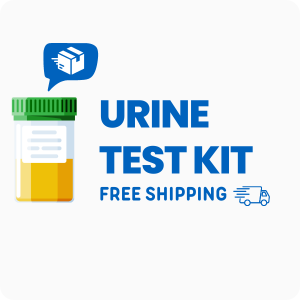Ordering the Beta Carotene Test
Beta carotene is a pigment found in many fruits and vegetables, and measuring its levels in your blood can help identify if your body is absorbing and converting it into vitamin A as it should. This test is often used to check for possible vitamin A deficiency, monitor nutritional status, or evaluate absorption issues in the digestive system. Interestingly, beta carotene levels can also reflect how well your body is handling oxidative stress, which is not widely known.
Ordering this test can provide specific benefits:
- Detects low or high beta carotene levels that may signal absorption problems in the gut.
- Helps monitor dietary intake of fruits and vegetables rich in carotenoids.
- Assists in evaluating risk for vitamin A deficiency, especially in people with restricted diets.
- Supports assessment of antioxidant status in the body.
- Guides dietary changes or supplementation based on measurable results.
Who Should Consider Beta Carotene Blood Analysis
People who have ongoing digestive issues, such as trouble absorbing nutrients, may benefit from this test. For example, someone who has been following a plant-based diet for several years and starts to notice changes in their vision or skin may want to check if their body is converting enough beta carotene into vitamin A.
Ordering this test may also be helpful in these situations:
- People with unexplained fatigue and pale skin.
- Those who have had weight loss surgery and need to monitor nutrient absorption.
- Anyone with a history of chronic diarrhea or digestive disorders.
- People who avoid animal products and rely on plant sources for vitamin A.
- Those who have a family history of inherited conditions affecting carotene metabolism, which can sometimes cause yellowing of the skin even with normal liver function.
Checking your beta carotene levels can help pinpoint if your body is getting and using this nutrient properly, which can be measured and tracked over time. Delaying this test may lead to missing early signs of nutrient absorption problems, making it harder to address them before they affect vision or immune function.
Preparing for Your Carotenoid Blood Screening
Fasting for 10-12 hours before your blood draw is required for this test to ensure the most useful results. Always follow any instructions your doctor or healthcare provider gives you, as they may have specific guidance based on your health needs.
Labs Included When Ordering Your Beta Carotene Test
| Test Name | Reference Range | What This Measures | Low and High Levels of Beta Carotene |
|---|---|---|---|
| Beta Carotene | 4.8–97.8 | Beta carotene is a plant pigment that the body converts into vitamin A. This test checks how much beta carotene is in your blood, which can show if you are getting enough from your diet or if your body is absorbing it properly. |
High levels mean you may be eating a lot of carotene-rich foods or your body is not converting it to vitamin A efficiently.
Low levels mean you may not be getting enough from your diet or your body is not absorbing it well. |
Reference ranges can change over time. For the most current values, visit the Quest Diagnostics lab test directory.
Beta Carotene Test FAQ
Is there Beta Carotene testing near me?
You can find a nearby location for Beta Carotene testing using the patient service center locator, which also lists mobile phlebotomy options. For those with digestive concerns or trouble traveling, having a convenient site makes it easier to get your blood drawn and monitor your nutrient levels.
What is the cost of the test?
The price you see for the Beta Carotene test includes all fees, including the blood draw at a patient service center. Ordering this test is worth it if you want to check for nutrient absorption issues that can affect your vision and immune system.
How often should I retest?
Retesting every 6 to 12 months is recommended, especially if you are making changes to your diet or have a condition that affects nutrient absorption. Regular checks help you track improvements or spot any ongoing problems with how your body uses beta carotene.
How accurate is the test?
This test uses high-performance liquid chromatography (HPLC) to measure beta carotene in the blood, with a specificity of 98% and sensitivity of 97%. All tests at TrueHealthLabs.com are performed by CLIA-certified labs, meeting strict quality and precision standards.
Medical Review Board
Reviewed by Jeff Donohue M.D. from Body Logic and Brady Hurst DC, CCCN. Written by True Health Lab’s team of editorial health contributors.
Disclaimer: This information is for educational purposes only and not intended as medical advice. Consult your healthcare provider for personalized guidance.
Why Customers Trust True Health Labs - What People are saying
Also rated 4.6 out of 5 based on 3452 ShopperApproved reviews- See all TrueHealthLabs.com reviews.







